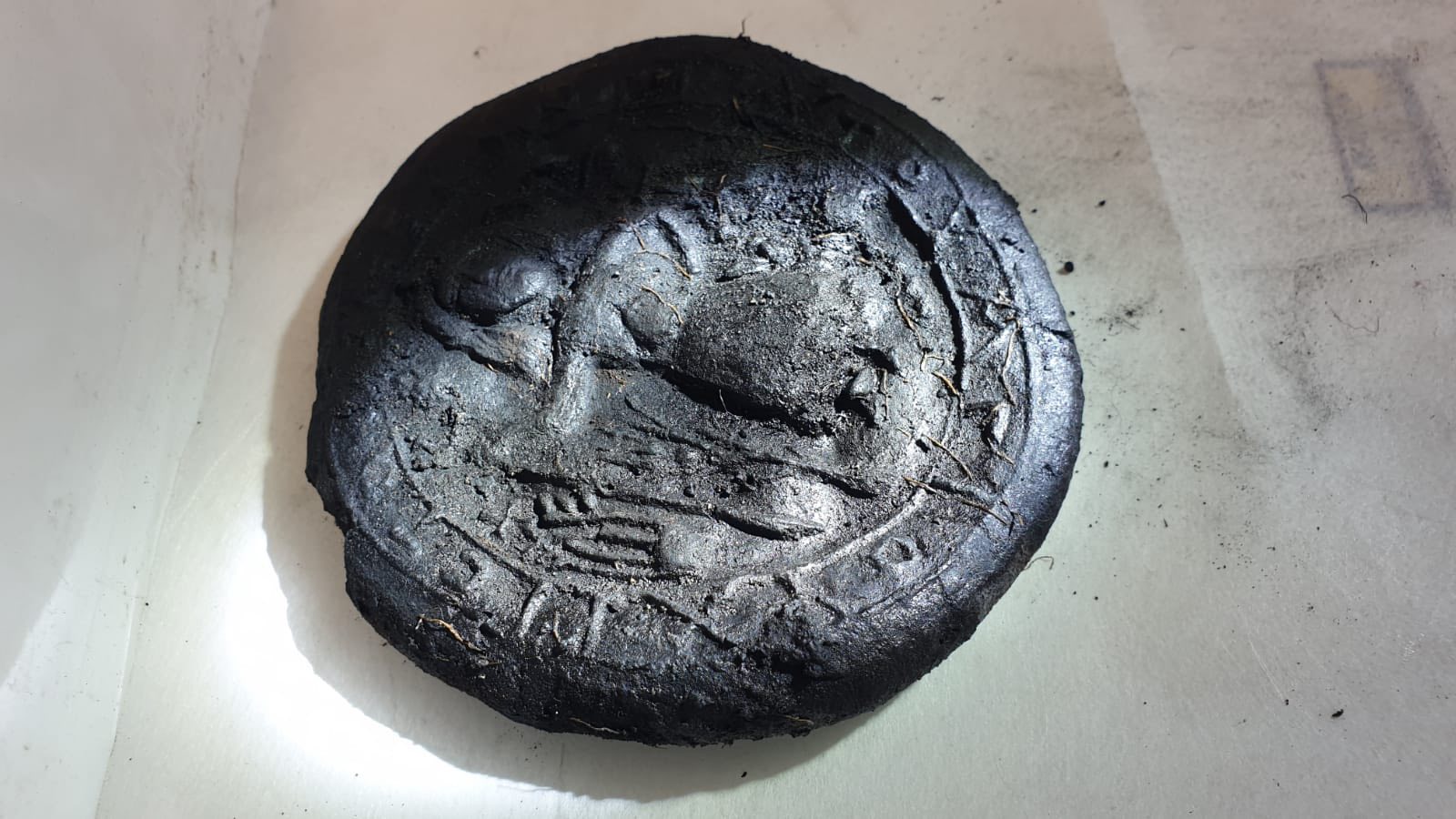
"Archaeologists in southern Turkey have uncovered five carbonised loaves of bread dating to the 7th-8th centuries AD, offering a rare glimpse into early medieval Christian life and worship. The discovery was made during excavations at Topraktepe, the site of the ancient city of Irenopolis in Karaman Province. One of the loaves is particularly remarkable for bearing a depiction of Jesus alongside a Greek inscription reading "With thanksgiving to the blessed Christ." According to epigraphic analysis, the image represents not the familiar "Christ the Redeemer" ( Pantocrator) but rather "Christ the Sower" or "Christ the Farmer." Archaeologists suggest this iconography symbolises fertility, labour, and sustenance-values that held deep spiritual meaning in the early Christian world."
"Four other loaves bear imprints in the form of a Maltese cross. Experts believe these decorated breads could have served as Eucharistic or prosphora breads used in early Christian liturgy. Their combination of religious imagery and inscriptions strongly points to ritual use within the community. At the same time, the barley flour used in their baking reflects ordinary dietary habits of the region, bridging the worlds of faith and daily sustenance. Researchers note that these finds illuminate both the spiritual and material dimensions of life in early medieval Anatolia."
"The breads survived nearly thirteen centuries thanks to a process of carbonisation-likely caused by fire or exposure to intense heat in anaerobic conditions-which preserved their shapes and surface details in striking clarity. Their imprints and inscriptions remain clearly visible, making them among the best-preserved examples ever found in Anatolia. Local officials have described the discovery as a "rare example" of early Christian material culture, shedding light on how religious symbols were integrated into the daily rituals"
Five carbonised loaves of bread dating to the 7th–8th centuries AD were excavated at Topraktepe, ancient Irenopolis in Karaman Province. One loaf bears a depiction of Jesus with a Greek inscription reading "With thanksgiving to the blessed Christ," and epigraphic analysis identifies the image as "Christ the Sower" or "Christ the Farmer," symbolising fertility, labour and sustenance. Four other loaves show Maltese cross imprints and likely functioned as Eucharistic or prosphora breads in early Christian liturgy. The barley flour used reflects ordinary dietary habits. Carbonisation preserved shapes, imprints and inscriptions for nearly thirteen centuries, producing exceptionally well-preserved material culture.
Read at Medievalists.net
Unable to calculate read time
Collection
[
|
...
]